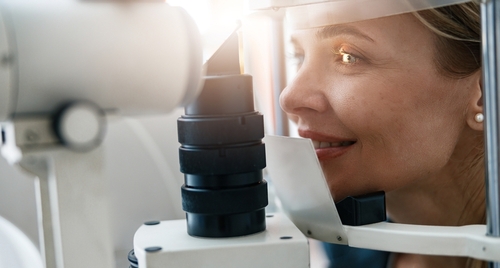
The role of an optometrist cannot be overstated in our daily lives. Often, we are so caught up in our routines that we overlook the importance of maintaining our vision and overall eye health. An optometrist plays a crucial role in helping us maintain and even improve our vision. They are trained professionals who specialize in examining the eyes for both vision and health problems, as well as correcting refractive errors by prescribing eyeglasses and contact lenses.
The Importance of Maintaining Vision and Eye Health
Regular eye exams are vital to maintaining your vision and overall eye health. They are not just for people who need glasses or contact lenses. Even if you don't have any noticeable vision problems, it doesn't mean your eyes are healthy. Many eye diseases, such as glaucoma and macular degeneration, can develop gradually without causing noticeable symptoms in the early stages.
A comprehensive eye exam can detect these conditions early, often before they have a chance to cause significant damage. Early detection and prompt treatment can often help prevent vision loss. Regular eye exams can also detect systemic diseases, such as diabetes and high blood pressure. These conditions can affect the blood vessels in your eyes and can lead to serious vision problems if not treated promptly.
Factors Determining How Often You Should Visit Your Optometrist
The frequency of your optometrist visits can depend on several factors. One of the primary considerations is your age. As we age, our risk of developing certain eye diseases increases, and therefore, we may need to have our eyes checked more frequently. Another important factor is your family history. If you have a family history of eye diseases, such as glaucoma or macular degeneration, you may need to have regular eye exams to monitor your eye health.
Your overall health condition can also influence how often you should visit your optometrist. For example, if you have diabetes or high blood pressure, you may need to have your eyes checked more frequently to monitor for related eye problems. Also, if you wear glasses or contact lenses, regular eye exams can ensure that your prescription stays up-to-date and that your eyes remain healthy.
The type of work you do can also affect how often you need to visit your optometrist. If your job involves significant screen time or exposure to harmful substances, regular eye exams can help protect your vision and eye health. Lastly, if you notice any changes in your vision or experience any eye-related symptoms, it's crucial to schedule an appointment with your optometrist promptly.
Adult Eye Health: How Often Should You Schedule an Optometrist Visit?
Generally, adults aged 18 to 60 should have a comprehensive eye exam at least once every two years. However, if you have risk factors such as a family history of eye diseases, diabetes, high blood pressure, or a job that puts your eyes at risk, you may need to have your eyes checked more frequently.
If you wear glasses or contact lenses, you should have an eye exam at least once a year. This ensures that your prescription is up-to-date and that your eyes are healthy. Likewise, if you notice any changes in your vision or experience symptoms such as persistent eye discomfort, blurred vision, or frequent headaches, you should schedule an appointment with your optometrist promptly.
It's important to remember that these are general guidelines, and individual needs may vary. Always consult with your optometrist to determine the best eye care routine for you.
Senior Eye Health: Frequency of Optometrist Visits in the Golden Years
As we age, our eyes naturally undergo changes, and the risk of developing certain eye diseases increases. Therefore, seniors generally need to have their eyes checked more frequently. It's recommended that seniors aged 61 and older have a comprehensive eye exam at least once a year.
Regular eye exams are crucial in the golden years as they can help detect age-related eye diseases such as cataracts, glaucoma, and macular degeneration early. Early detection and prompt treatment can often help prevent vision loss. Moreover, regular eye exams can ensure that seniors have an up-to-date prescription for their glasses or contact lenses, helping them maintain good vision and quality of life.
However, seniors with health conditions such as diabetes or high blood pressure may need to have their eyes checked more frequently, as these conditions can lead to serious eye problems if not monitored closely. Likewise, seniors who notice any changes in their vision or experience any eye-related symptoms should schedule an appointment with their optometrist promptly.
Conclusion
Maintaining our vision and eye health is crucial at any age. Regular eye exams play an essential role in this, helping detect any potential issues early and ensuring our eyes are healthy. The frequency of these visits can vary depending on a range of factors, including age, health condition, and risk factors.
If you have questions on how often you should have an eye exam, visit Sylvain Eye Care P.C. in our Atlanta, Georgia, office. We provide quality eye care services and products for the entire family. Call (404) 341-4350 to schedule an appointment today.









